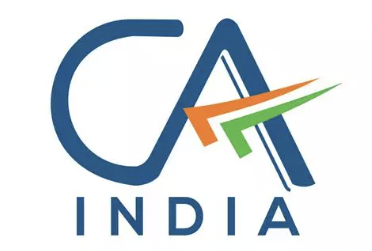Our Services
Project Report

Finance Project Report Services
When one is starting a new business or expending an existing business, they need money for capital and working capital. To get the finance, the businessman needs to submit project report to get financing from a bank or any other financial institution. The banks rely very much on this report and carefully evaluate CMA data for eligibility of funding. Special skills are required for preparation of CMA data reports.
Project Report for Bank Loan present a diverse range analytical challenges to its Investors and Clients. Hence, a comprehensive Bank Loan Project Report requires a detailed analysis of the bank’s fiscal transactions that identifies its distinctive risks.
Project appraisal is a generic term that refers to the process of assessing, in a structured way, the case for proceeding with a project or proposal.
Preparation of Project Report and its contents for Project Appraisal for Bank Loan are as under-
- Project Identification Process
- Project Feasibility Study: Economic Feasibility, Technical Feasibility, Marketing Feasibility, Financial Feasibility, Environmental Feasibility
- Details about the Promoters, their educational qualifications, work experience, etc.
- Current Status of the Bank, its products and services, target market, and activities.
- Details about the top management, their educational qualifications, work experience, etc.
- Infrastructure facilities, tools deployed, operational premises, machinery, etc
- Fiscal acquisitions and tie-ups
- Means of Financing
- Balance Sheet & Profit and Loss Statements
- Fund Flow Statement
- Critical Ratios
- Break Even Point Evaluations
We Meru & Associates with our vast Experience team members are able to undertake numerous projects on preparing Project Report for Finance Arrangement. This helps us in providing our clients with the best financial solutions for maximum benefits. We render these services in compliance with the concerned norms and guidelines.
Our organization has gained prominence for offering Project Reports services that is extensively in demand in various sectors. We provide our clients with Project Report for Finance Arrangement and CMA Data for CC Limit services.
The banks rely very much on this report and carefully evaluate CMA data for eligibility of funding. Special skills are required for preparation of CMA data reports.
This is where DVKS plays vital role by preparing an appealing Project Report based on the facts & data that can arrange required finance for your business to kick off or expand.
FREQUENTLY ASKED QUESTIONS
Q.1. What is a project report, and why is it essential for securing a bank loan?
Definition: A project report is a comprehensive document that outlines the details of a proposed business project, including its objectives, strategies, financial projections, and feasibility analysis.
Purpose:
- Assessment Tool: Banks and financial institutions use project reports to evaluate the viability and profitability of a project before approving loans.
- Risk Evaluation: Helps lenders assess potential risks and the borrower’s ability to repay the loan.
- Decision-Making Aid: Provides a structured framework for decision-making regarding loan sanctions.
Importance:
- Demonstrates Preparedness: Showcases the entrepreneur’s thorough planning and understanding of the business venture.
- Builds Credibility: Enhances the credibility of the borrower in the eyes of the lender.
- Facilitates Monitoring: Serves as a reference point for monitoring the project’s progress post-loan disbursement.
Q.2. What are the key components of a project report for a bank loan ?
Executive Summary:
Provides a concise overview of the project, highlighting its purpose, scope, and unique selling propositions.Company Background and Promoters’ Information:
Details about the business entity, its history, mission, and the profiles of key promoters, emphasizing their experience and qualifications.Project Description:
Comprehensive information about the project, including location, infrastructure, technology to be used, and the project’s lifecycle.Market Analysis:
Insights into industry trends, target market demographics, competitor analysis, and marketing strategies.Technical Feasibility:
Assessment of the technical requirements, including machinery, equipment, production processes, and quality control measures.Financial Projections:
Detailed financial statements such as projected balance sheets, income statements, cash flow statements, break-even analysis, and ratio analysis.Risk Analysis and Mitigation Strategies:
Identification of potential risks and the strategies planned to mitigate them.Regulatory and Legal Compliance:
Information on necessary licenses, permits, and adherence to statutory regulations.Appendices:
Supporting documents like resumes of key personnel, technical diagrams, and additional data relevant to the project.
Q.3. How has the project report format evolved to meet current banking requirements?
Digital Integration:
Inclusion of digital strategies, such as online marketing plans and e-commerce integration, reflecting the digital transformation in business operations.Sustainability Considerations:
Emphasis on environmental impact assessments and sustainable practices, aligning with global sustainability goals.Advanced Financial Modeling:
Utilization of sophisticated financial models to provide more accurate and dynamic financial projections.Enhanced Risk Management Frameworks:
Detailed analysis of market volatility, cybersecurity threats, and compliance risks, with robust mitigation plans.Regulatory Updates:
Incorporation of the latest regulatory changes, such as updated tax laws and industry-specific compliance requirements.
Q.4. What common pitfalls should be avoided when preparing a project report for a bank loan?
Overly Optimistic Projections:
Avoid unrealistic financial forecasts that are not supported by market data.Insufficient Market Research:
Neglecting thorough market analysis can lead to underestimating competition and market challenges.Lack of Clarity:
Unclear objectives, strategies, or financial data can confuse lenders and undermine credibility.Ignoring Risk Factors:
Failing to identify and address potential risks may raise concerns about the project’s feasibility.Non-Compliance with Regulatory Requirements:
Omitting necessary legal and regulatory information can result in immediate rejection.
Q.5. How can a Chartered Accountant assist in the preparation of a project report for a bank loan?
Financial Expertise:
CAs provide accurate financial projections, budgeting, and funding requirements analysis.Regulatory Compliance:
Ensure the project adheres to all statutory and regulatory requirements, reducing legal risks.Risk Assessment:
Identify potential financial and operational risks and develop effective mitigation strategies.Professional Presentation:
Prepare a well-structured and comprehensive report that meets banking standards and enhances the likelihood of loan approval.Ongoing Support:
Provide continuous support during the loan application process, including clarifying queries from lenders and assisting in negotiations.
